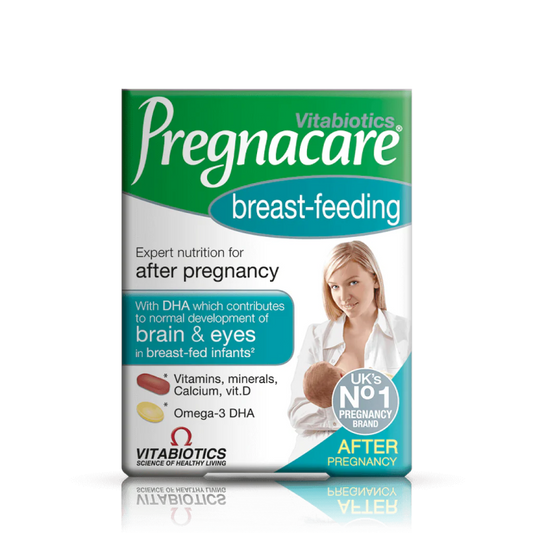Vitamin D, often called the “sunshine vitamin,” is an incredibly important nutrient that plays a key role in maintaining our health and well-being. What makes it unique is that our bodies can synthesize it on their own when exposed to sunlight. This blog post aims to provide comprehensive information on the role of vitamin D, its natural and dietary sources, symptoms of deficiency, recommended doses, available forms of supplements, and the potential risks of overconsumption. Understanding these aspects will allow you to consciously take care of the proper level of this vitamin and enjoy better health.
Why is vitamin D so important?
The basic and best known function of vitamin D is to regulate calcium and phosphate metabolism in the body. Vitamin D supports the absorption of calcium and phosphorus from the digestive tract , which is essential for maintaining healthy and strong bones and teeth. In children, an adequate level of vitamin D prevents the development of rickets , while in the elderly it protects against osteoporosis , a disease characterized by increased bone fragility. This action makes vitamin D crucial at every stage of life.
However, the role of vitamin D is not limited to the health of the skeletal system. Studies have shown its significant impact on the functioning of the immune system . Vitamin D has an immunomodulatory effect, which means that it helps the body fight viral and bacterial infections . It may also help reduce the risk of developing autoimmune diseases . This discovery broadens the perspective on the importance of vitamin D, making it important for the overall immunity of the body.
In addition, vitamin D plays many other important roles in our body. It supports the proper functioning of muscles , helping to maintain their strength and coordination, which is especially important for older people in the context of preventing falls. Vitamin D also affects brain health and can regulate mood, helping to reduce the risk of depression . Some studies also suggest its role in maintaining a healthy cardiovascular system and regulating blood pressure. What's more, vitamin D is involved in metabolic processes, including insulin secretion and regulation of blood glucose levels, which may be important in the prevention of type 2 diabetes and metabolic syndrome . Vitamin D is also important for skin health , supporting the regeneration of the epidermis and the work of immune cells in the skin. There are also reports of a potential protective role of vitamin D against certain types of cancer, such as breast, prostate and colon cancer.
It is worth knowing that vitamin D comes in two main forms:
- Vitamin D3 (cholecalciferol)
- Vitamin D2 (ergocalciferol)
Vitamin D3 is synthesized in our skin by exposure to sunlight and is found in animal products. Vitamin D2, on the other hand, comes from plant sources, such as some fungi and yeast. Both forms are important for our bodies, but vitamin D3 is often considered more effective at raising blood levels of vitamin D.
See also: Vitamins for immunity - strengthen your immune system
Natural Sources of Vitamin D: Sun and Diet
The most important natural source of vitamin D for most people is exposure to sunlight . UVB radiation from sunlight initiates the synthesis of vitamin D3 in the skin. Short-term sun exposure (about 15-20 minutes) between 10:00 and 15:00, with a large part of the body exposed (face, arms, legs) is usually recommended to ensure adequate vitamin D production. However, it is important to be aware of the risks of overexposure and use sun protection when sun exposure is prolonged.
Unfortunately, the synthesis of vitamin D from the sun is limited, especially in autumn and winter in countries with a moderate latitude, such as Poland , when the angle of incidence of the sun's rays is smaller and the days are shorter and often cloudy. During such periods, and also for people who for various reasons avoid the sun or have limited exposure, diet becomes an important, although often insufficient, source of vitamin D.
In the diet, vitamin D occurs in relatively few products, mainly of animal origin. It can be found in:
- Oily sea fish - such as salmon, mackerel, herring, tuna, eel, carp and sardines, and this amount may vary depending on the species and how it is processed
- Egg yolks - slightly smaller amounts
- Fortified food products - e.g. margarine, dairy products, especially for infants
- Mushrooms - to a small extent
It is estimated that diet usually provides only about 10-20% of our daily vitamin D requirements . For this reason, especially during periods of limited sun exposure, many people may need additional sources of vitamin D, such as supplements. In some countries, such as the United States, it is practiced to fortify more food products with vitamin D, which helps to increase its availability in the diet. In Poland, the main fortifications are margarines and dairy products for infants.
What Foods Contain Vitamin D? A Review of the Best Food Sources
To help you find your way around products rich in vitamin D, below is a table with sample food sources and the approximate vitamin D content per 100 g of product or portion:
|
Product |
Approximate Vitamin D Content (IU/100g or per serving) |
|
Fresh eel |
1200 |
|
Fresh salmon (wild) |
600-1000 |
|
Herring in oil |
808 |
|
Pickled herring |
480 |
|
Salmon (cooked/baked) |
540 |
|
Fresh salmon (farmed) |
100-250 |
|
Tuna (canned) |
200 |
|
Sardines (canned) |
200 |
|
Mackerel (boiled/baked) |
152 |
|
Fresh cod |
40 |
|
Egg yolk |
54 (for yolk) |
|
Yellow cheese |
7.6-28 |
|
Cow's milk |
0.4-1.2 (per 100 ml) |
|
Shitake Mushrooms |
100 |
|
Fresh mushrooms |
1.94 |
|
Extra butter |
0.76 |
|
Soft margarine (60% fat) |
6.25 |
|
Cod liver oil |
10000 (per 100 g) / 400 (in 5 ml - teaspoon) |
As you can see from the table above, fatty sea fish definitely reign supreme in terms of vitamin D content. It is worth including them in your diet regularly. Eggs, cheeses and fortified products can also be a reliable source of vitamin D, but their content is much lower. It is important to remember that it can be difficult to obtain the right amount of vitamin D from food alone, especially during periods of limited skin synthesis.
What are the symptoms of vitamin D deficiency?
Vitamin D deficiency is a common problem that can lead to a range of unpleasant symptoms and serious health consequences. Symptoms of deficiency can be varied and often nonspecific, making it difficult to recognize them early. The most common symptoms include chronic fatigue and weakness , even with enough sleep. People with vitamin D deficiency may also experience bone and muscle pain , which can be confused with other ailments. Frequent infections, such as colds and flu , can also indicate insufficient vitamin D levels, as it weakens the immune system.
Vitamin D deficiency can also have a negative impact on mood , leading to lower well-being and even depression.
Other symptoms of vitamin D deficiency include:
- Excessive hair loss
- Sleep problems
- Slower healing of wounds
- Weight gain
- Dental problems (teeth weakening and gum disease)
- Problems with concentration, learning and memory
- Frequent headaches
- Bad taste in the mouth and a burning sensation
Long-term and severe vitamin D deficiency can lead to more serious health consequences. In children, it can develop rickets , a condition characterized by bone deformities. In adults, vitamin D deficiency can lead to osteomalacia, a softening of the bones that increases the risk of fractures. In addition, low levels of vitamin D are associated with an increased risk of developing osteoporosis and fractures, especially in older people.
Studies also suggest that chronic vitamin D deficiency may increase the risk of certain chronic diseases , such as cardiovascular disease, type 2 diabetes, some autoimmune diseases, and certain types of cancer. For this reason, you should not ignore the symptoms of vitamin D deficiency and consult your doctor if you experience them.
Who is particularly at risk of vitamin D deficiency?
There are certain groups of people who are at greater risk of vitamin D deficiency due to various factors. Older people (over 65 years of age) are at risk because their skin's ability to synthesize vitamin D from sunlight decreases with age. Similarly, people with limited sun exposure , such as people who work indoors, people with dark skin (because melanin reduces the absorption of UVB rays), and people who wear clothing that covers most of their body, may have lower levels of vitamin D.
Overweight or obese people are also at greater risk of vitamin D deficiency, as the vitamin is stored in fat tissue and may be less available to the body. Certain health conditions and diseases can also affect the absorption or metabolism of vitamin D, increasing the risk of deficiency. These include gastrointestinal diseases (e.g., Crohn's disease, celiac disease), liver disease, and kidney disease.
Vegetarians and vegans may have difficulty getting enough vitamin D from their diets , as most natural sources come from animal products. Babies who are exclusively breastfed may also be at risk of deficiency, as breast milk is not a rich source of vitamin D. Pregnant and breastfeeding women have increased vitamin D requirements, which can also increase the risk of deficiency if not supplemented appropriately.
Additionally, people taking certain medications may experience disruptions in vitamin D metabolism . Finally, people living in regions with little sunlight, especially during the winter, are naturally more susceptible to vitamin D deficiency. If you fall into any of these groups, it is worth considering regular vitamin D testing and consulting your doctor about possible supplementation.
What is the optimal daily dose of vitamin D?
Recommended daily doses of vitamin D vary depending on age, health and individual needs:
- Newborns and infants (0-12 months) - 400-600 IU (International Units) of vitamin D per day is usually recommended
- Children (1-10 years) - typically need 600-1000 IU per day.
- Youth (11-18 years old) – recommended dose is 800-2000 IU per day.
- Adults (19-65 years old) - should take 1000-2000 IU of vitamin D daily, and in case of limited exposure to sun or known deficiency, the dose may be higher.
- Seniors (65-75 years old) - should supplement 1000-2000 IU all year round, and people over 75 years of age often require a higher dose of 2000-4000 IU daily
- Pregnant and breastfeeding women usually need about 2,000 IU of vitamin D per day
- Obese people - may even require double doses compared to people with a normal body weight
It is worth remembering that these are general guidelines, and individual needs may vary. The best way to determine the optimal dose of vitamin D is to consult a doctor and have a blood test to check the level of 25(OH)D, a metabolite of vitamin D. Based on the test results and taking into account your age, health and lifestyle, your doctor will be able to recommend the appropriate dose of supplementation. It is also worth remembering the unit conversion: 1 microgram (µg) of vitamin D corresponds to 40 IU.
Vitamin D Supplementation: What Forms Are Available and How to Use Them Properly?
There are many different forms of vitamin D supplements available on the market . The most common are vitamin D3 (cholecalciferol) , which is preferred due to its better absorption and effectiveness in raising vitamin D levels in the blood, and vitamin D2 (ergocalciferol) , which is usually of plant origin. Vitamin D supplements come in the form of tablets, capsules (including softgels), oral drops, and sprays. There are also preparations available that combine vitamin D with other ingredients, such as vitamin K2.
This may be useful to you: Ultra Vitamin D 4000IU vitamin D
For vitamin D supplementation to be effective, there are a few rules to follow. Vitamin D is fat-soluble, so it is recommended to take supplements with a meal containing fat, which improves its absorption. For infants, vitamin D is most often recommended in drops , which makes dosing easier. It is extremely important not to exceed the recommended dose of a supplement without consulting a doctor. The typical target range for vitamin D in the blood is 30-50 ng/mL (75-125 nmol/L). Regular testing of vitamin D levels can help monitor the effectiveness of supplementation and adjust the dose as needed .
What are the dangers of a vitamin D overdose?
Although vitamin D is essential for health, excessive consumption can lead to adverse health effects called hypervitaminosis D. Vitamin D overdose usually results from taking too high doses of supplements rather than from sun exposure or diet.
Potential symptoms of a vitamin D overdose include:
- Gastrointestinal complaints - such as nausea, vomiting, diarrhea, constipation and abdominal pain, as well as loss of appetite
- Increased levels of calcium in the blood (hypercalcaemia) - which can cause frequent urination (polyuria) and excessive thirst (polydipsia), leading to dehydration
- Neurological symptoms - weakness, fatigue, drowsiness, disorientation, as well as headaches
- Muscle and bone pain - and even weakness
- Irregular heartbeat, kidney and pancreas problems - including kidney stones and kidney failure, pancreatitis
- Metallic taste in the mouth and skin rash or itching
- Soft tissue calcification and life-threatening in extreme cases of overdose
To avoid vitamin D overdose, it is important not to exceed recommended doses and to consult a doctor before starting high-dose supplementation . Regular monitoring of vitamin D levels in the blood can help maintain safe levels and prevent both deficiency and excess of this vitamin.
Take care of the right level of vitamin D for your health and well-being
Vitamin D is an incredibly important nutrient that plays a number of key roles in our bodies, from maintaining healthy bones and teeth to supporting our immune system and mental health. Ensuring adequate levels of vitamin D are essential for our overall health and well-being.
We encourage you to consider your individual risk factors for deficiency and take appropriate steps to maintain optimal levels of vitamin D through sensible sun exposure, a balanced diet, and supplementation when necessary. Remember to consult your doctor for personalized advice and recommendations if you have any concerns or are planning to take a supplement. Maintaining a healthy vitamin D level is an investment in your health for years to come.










